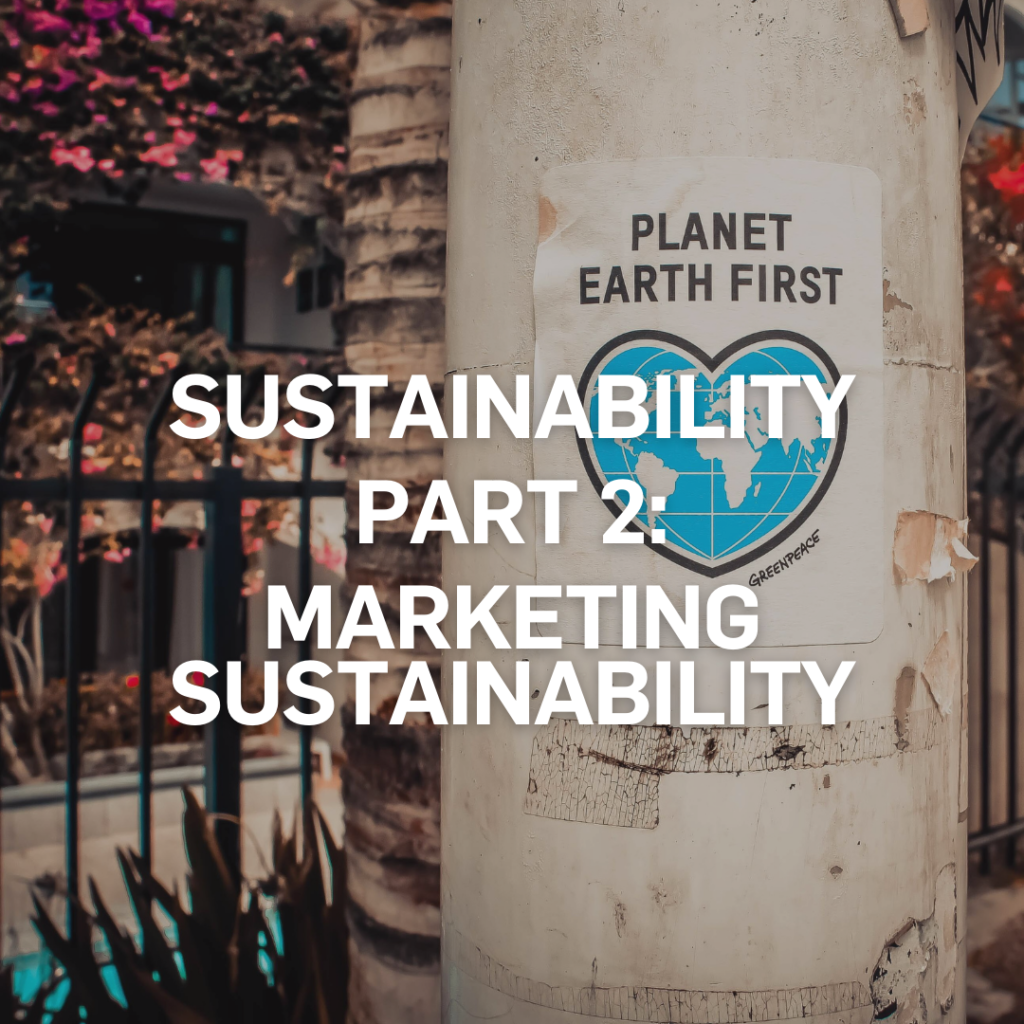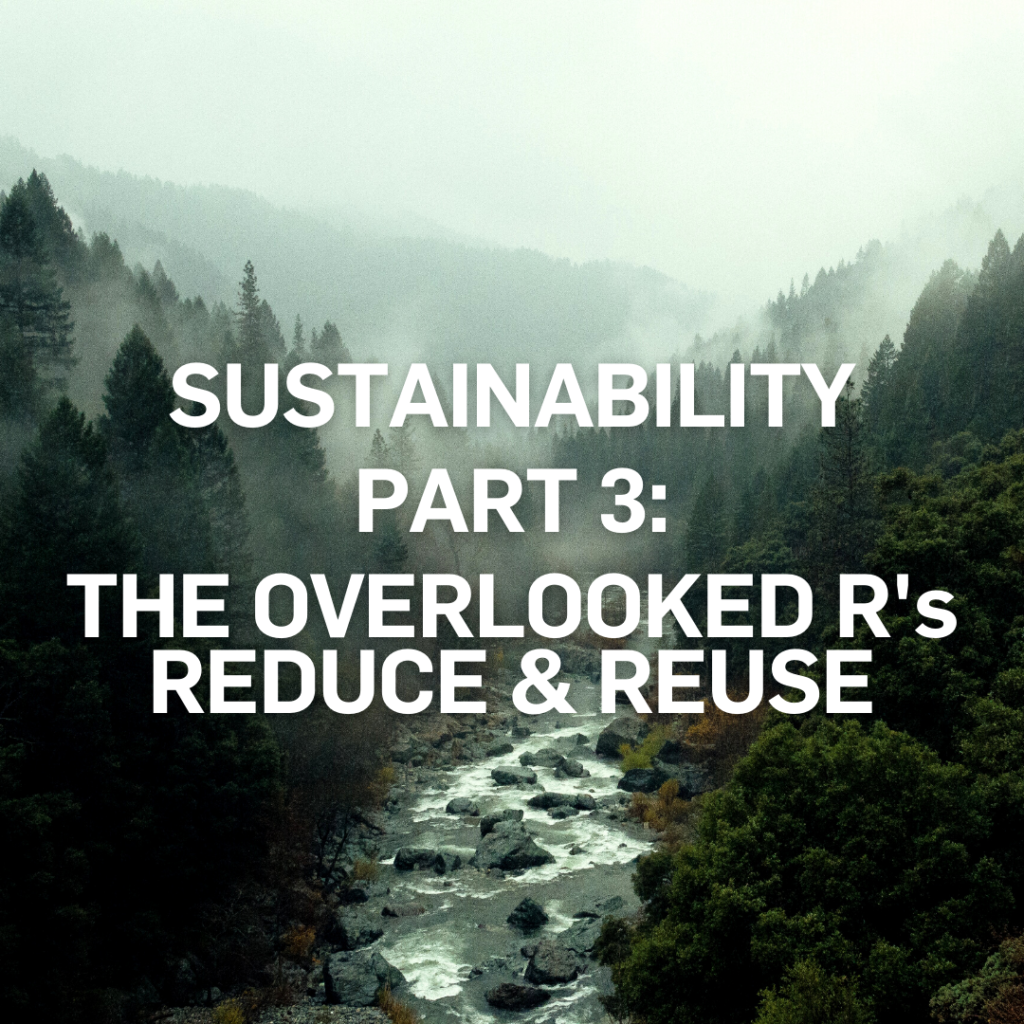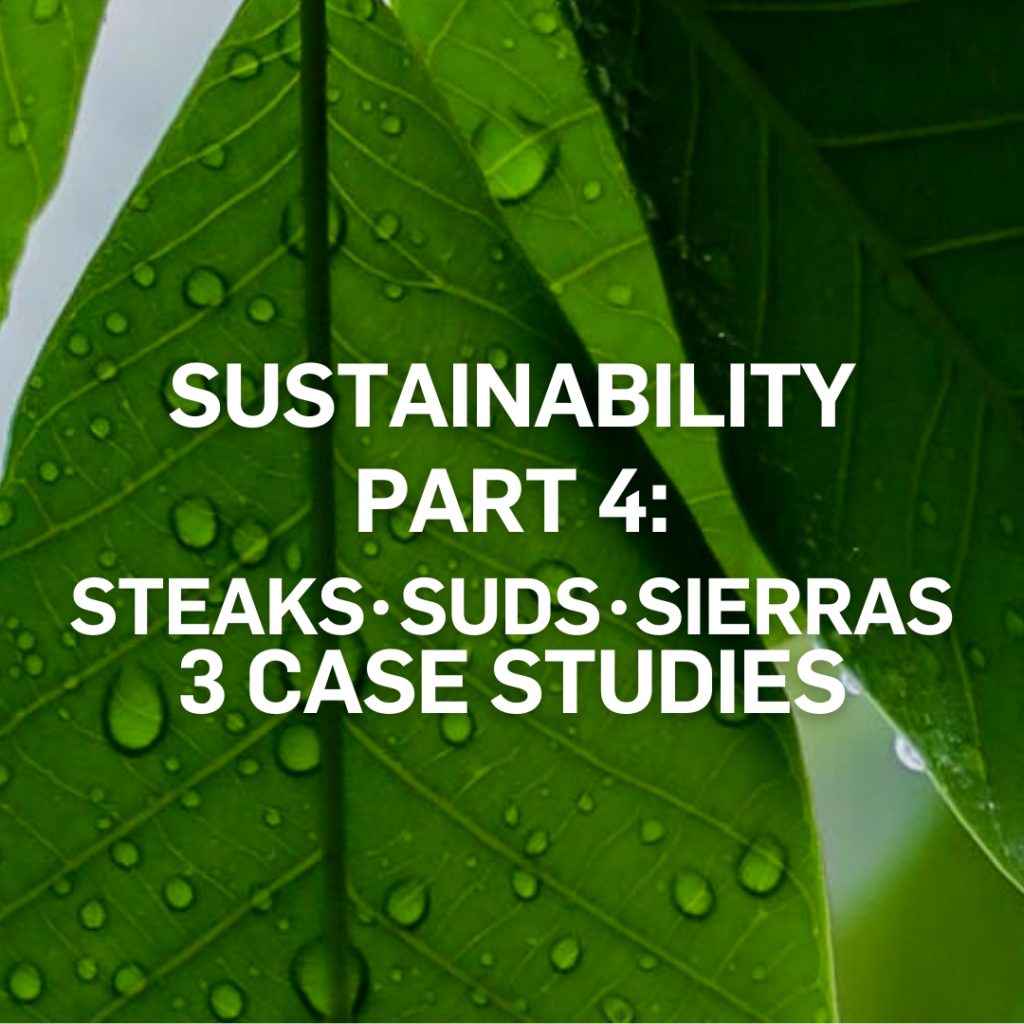Part 1: Making the Case

Sustainability has been a topic of discussion around the J.Schmid studio for a while. We believe in it personally. We believe in it as an organization. And we believe in the upside for our clients. So we’ve decided to write a blog series about it. Now, to be clear, we are NOT sustainability experts. However, as brand and marketing consultants, we’d like to share our opinions on why sustainability matters and why it’s not only the right thing to do, but why it makes good business sense.
In todays’ ever-evolving world, debating whether to include sustainability into your business strategy is no longer an option. Considering a values-driven or purpose-based approach when creating business strategies can be vital to long-term success.
What is sustainability in business?
In short, sustainability in business refers to the impact companies have on the environment and society.
A sustainable business strategy aims to positively impact one or both of those areas. Some of the issues that sustainable business strategies help to address include: climate change, depletion of natural resources, fair working conditions, pollution, and human rights issues.
Sustainability is quickly becoming a necessity for companies due to changing perspectives around the world. While 90% of executives believe sustainability is important, only 60% of these companies have a sustainability strategy.
Here are three reasons why having a sustainability strategy is a good idea.
Being purpose-driven is a competitive advantage
Millennials are now the largest generation of our population. Every brand seems to want more of their time, attention and dollars. A recent Nielsen survey shows that Millennials are twice as likely as Baby Boomers to say they are changing habits to specifically reduce environmental impact. And the up-and-coming Gen Z is even more concerned about the environment than Millennials. Do you want your brand to connect and be relevant to this younger group of consumers? Then sustainability practices must be near the top of your list.
As these new and ultra-valuable consumers make their buying decisions and compare what your brand stands for versus the competition, you better believe they’re doing their homework on your sustainability practices. It has become a competitive advantage, and you’re either winning or you’re losing. Good intentions are no longer good enough.
There’s a growing market for sustainable goods
A 2019 study found that 73% of global consumers are willing to change their buying habits to lessen their negative impact on the environment. Millennials in particular are more willing to happily pay more for products that contain sustainable ingredients or products that have social responsibility built in. And 81% of global consumers feel strongly that companies should help improve the environment. There is clearly a trend among consumers toward supporting sustainability, and it is only getting stronger as the number of Millennials and Generation Z increases.
If your brand commits to sustainable products and practices, it could gain market share by attracting sustainability-minded customers and increasing sales. And if you’re not the one attempting to gain this advantage, then someone else will be. Don’t get left behind.
It just makes good business sense
The fact is, sustainability in business is not merely altruistic. According to Harvard Business School, you can’t use business to do good in the world if you’re not doing well financially. Doing well (making money) and doing good (solving social and environmental problems) are linked together, and successful business strategies include both.
According to Forbes and McKinsey, a sustainability strategy can reduce costs dramatically and can affect profits by as much as 60%. It can lower energy consumption and increase efficiency. Being sustainable can also improve your standing with the government and the local community. It can get your company tax incentives and subsidies.
If there’s any question whether adopting a sustainability strategy can directly lead to profits, just ask the folks at Unilever, who have been ahead of this conversation. Of its 400-plus brands, 28 are what they call Sustainable Living Brands (“those taking action to support positive change for people and the planet”). These brands grew 69% faster than the rest of Unilever’s business in 2018, delivering 75% of the company’s overall growth. Hard to argue with those results.
Sustainability has clearly become a vital part of any company’s successful strategy. Economic, social and environmental sustainability is a must in today’s business environment. It can add brand value, meet consumer demands, attract valuable talent and create new opportunities. And now is the time to take action.
As Dr. Martin Luther King, Jr. once said, “The time is always right to do what is right.”
Please keep an eye out for the next three installments of this blog series on sustainability. We’ll be explaining how to address it through your marketing efforts and will feature case studies of brands who do it well.
(Sources: Forbes, Harvard Business School, McKinsey)
More in the series:

How is your brand committed to sustainability? How are you communicating that to your audience?
Read on to learn about the four pillars of sustainability with J.Schmid’s Creative Director Matt Fey.

Recycling has made tremendous strides in recent years – but when it comes to sustainability, there are two other words we’re missing.
J.Schmid’s VP Client Strategy, Lauren Ackerman breaks down the missing pieces here.

Thankfully there are many brands taking the concept of sustainability seriously.
Read on as J.Schmid’s Copywriter, Devon Clements takes a deeper look into three brands that are uniquely shaped by their dedication to sustainability.
Thanks to Unsplash for the photo by Noah Buscher
Tags: Brand Storytelling, Brent Niemuth, catalog design, Strategy
